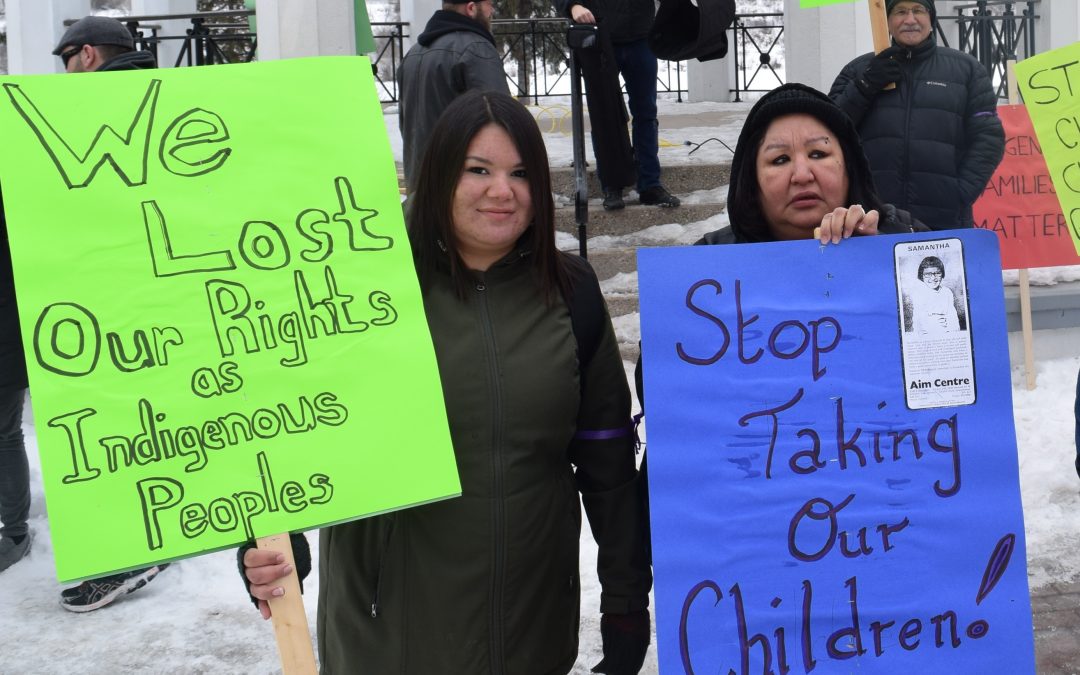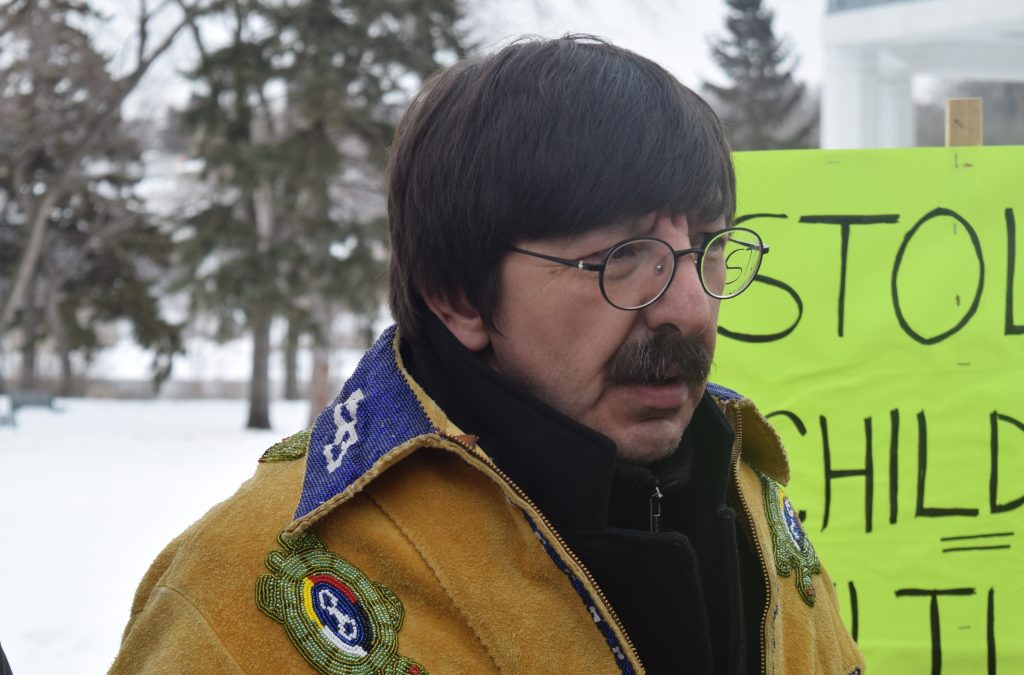Several hundred people took to the streets in major cities across Canada on Friday to stand in solidarity with survivors of the Sixties Scoop.
Many survivors and experts on the Sixties Scoop have spoken of the devastating impact this part of Canadian history has had on First Nations, Inuit and Metis communities.
The Sixties Scoop was a period of time in Canada where many Aboriginal children were taken from their families by child welfare agents and placed in predominantly non-Indigenous homes.
Many survivors have spoken about how this process almost killed their cultural identity.
“I didn’t even know I was Cree,” said survivor Melissa Parkyn, originally from Moosomin First Nation. “I lost a lot, but I am fortunate to be here today to tell my story.”
At a rally in Saskatoon, many carried signs that read, “No Metis, no non-status, no settlement,” “Let us tell our stories” and “Stolen children equals cultural genocide.”
Around 100 people gathered for the rally in front of the Court of Queen’s Bench, where they walked throughout downtown Saskatoon.
Some at the rally said they just want recognition from the rest of Canada on the devastating impacts of the Sixties Scoop. Others took the chance to speak out against Metis exclusion in the proposed $800-million settlement for Sixties Scoop survivors.
“This is an important issue, not only for First Nation and Metis people who were scooped up during the Sixties scoop, but also for Canadians in general,” said Robert Doucette, a Sixties Scoop survivor. “It is a chapter in the history books that very few people know about, but it has impacted thousands of people.”
(PHOTO: Robert Doucette, an organizer of the Saskatoon rally. Photo by Joel Willick.)
Doucette, a former president of the Metis Nation-Saskatchewan, is currently in a legal battle with Ottawa over Metis exclusion in the proposed settlement for Sixties Scoop survivors.
Many at the rally spoke in support of Doucette’s cause, something he says he is grateful for.
“We suffered the same,” said Doucette. “Metis always seem to be the forgotten, and we are not going to let that happen.”
While Heather Acoose, a member of Cowessess First Nation, says she is not a survivor herself, she came to the rally because of the many people in her life who were impacted.
“We want to see more of society come out and join our rallies,” she said. “We want non-Aboriginal people to join us and show society that it isn’t just an Indigenous problem, it is a Canadian problem.”
Rallies are also taking place in eight other major Canadian cities, including Calgary, Ottawa and Vancouver.
Organizers believe the rallies today will be the largest mobilization of Sixties Scoop survivors to date.
(TOP PHOTO: Many carry signs in support of Sixties Scoop survivors at a rally in Saskatoon. Photo by Joel Willick.)

